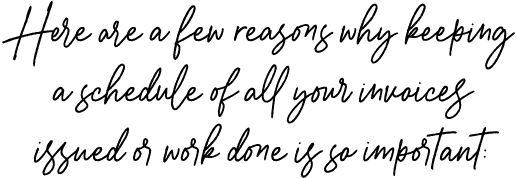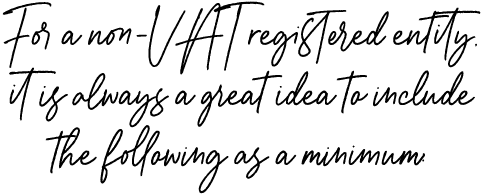Keeping a schedule of your income earned and why it is important

Keeping a schedule of your income earned and why it is important
So often I have come across small businesses who issue invoices in a manual system (Word, Excel, Canva or any other document creating process they may enjoy) but who do not keep a schedule of these invoices in order to track total earnings for the month / year.
If you are being paid, you may ask why it would be important to still keep a schedule of the invoices?

- Keeping track of total earnings for a month allows you to compare this to your monthly budget and to action any changes necessary if you’re not tracking where you thought you would be.
- An updated invoice schedule allows you to monitor the number of invoices issued and the collection of the related payments.
- Having sequentially numbered invoices allows for a far smoother audit or verification process should you need to submit these for any reason (SARS related or otherwise)
An invoice schedule should ideally be a list type format with a few of the basic details of the invoice and a sequential invoice numbering system. The invoice schedule should be updated for every invoice issued, at the time of the invoice being issued.
Download the official SARS requirements of a valid tax invoice below. Although this is the official checklist of a VAT registered entity’s invoice, it can be applied to all invoices.

- Sequential invoice number
- Date of invoice
- Your business name and address
- Customer name and address
- Description of goods or service
- Price of goods or service (quantity x price per item / unit)
- Invoice total value
Download our basic MS Excel invoice schedule to keep your invoices in order.
Yours in simplifying finance,

Search
Latest Posts